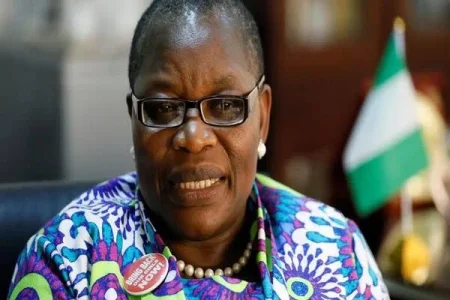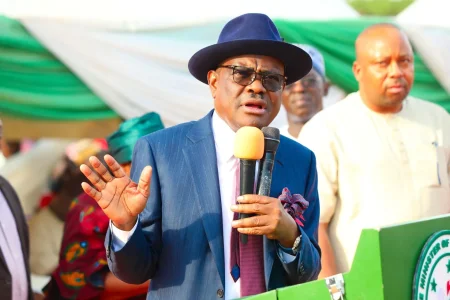
Former Minister of Education Obiageli Ezekwesili opposes Nigeria's reinstated old national anthem, "Nigeria, We Hail Thee," preferring the 1978 anthem "Arise, O Compatriots." Despite President Tinubu signing the bill, Ezekwesili vows to continue singing the latter
In a move that has sparked widespread debate and controversy, former Nigerian Minister of Education Obiageli Ezekwesili has declared that she will not recite the reintroduced old national anthem, "Nigeria, We Hail Thee."
Despite the recent legislative push and presidential approval of the anthem's reinstatement, Ezekwesili remains steadfast in her opposition.
The Nigerian House of Representatives swiftly passed the bill on May 23, followed by the Senate's approval during a public hearing on Tuesday. Julius Ihonvbere, the lawmaker behind the bill, argued that reinstating the old anthem would bolster patriotism and nationalism among Nigerian citizens.
On Wednesday morning, President Bola Tinubu signed the bill into law and was welcomed to the floor of the green chamber to the tune of the reintroduced national anthem. Tinubu expressed his belief that the anthem reflects Nigeria’s diversity and unity, a sentiment echoed by several lawmakers.
However, Ezekwesili, known for her forthrightness and advocacy, described the law as repugnant and declared her intention to continue singing the 46-year-old anthem, "Arise, O Compatriots," which has been in use since 1978.
"Let it be known to all and sundry that I, Obiageli ‘Oby’ Ezekwesili, will whenever asked to sing the Nigerian National Anthem sing: '1. Arise, O compatriots, Nigeria’s call obey,'" she stated, referencing the first lines of the anthem that has long been a symbol of Nigeria's identity. "This is my own National Anthem and let it be known that no one can suppress my right to dissent an obnoxious ‘law’ that is repugnant to all that is of good conscience in Nigeria. Whatever else is #NotMyNationalAnthem."
The reintroduction of the old anthem has not been without its critics. Former Senator Shehu Sani, representing Kaduna Central, emphasized the need for broader consultation before making such significant changes.
He warned that altering the national anthem without extensive public input could be seen as an attempt to undermine Nigeria’s unity.
"This decision should involve the voices of Nigerians," Sani remarked. "Changing the national anthem is not a matter to be taken lightly, and it should certainly not be done without consulting widely."
The reinstatement of "Nigeria, We Hail Thee," originally used before being replaced in 1978, has raised questions about the motivations behind the move and its implications for national unity.
Supporters of the change argue that it harkens back to Nigeria’s early post-independence days and fosters a sense of historical continuity.
Critics, however, view it as an unnecessary disruption that may alienate those who have grown up with "Arise, O Compatriots" as their national anthem.
As the debate continues, Ezekwesili’s defiance has become a focal point of the controversy. Her decision to openly reject the reintroduced anthem highlights the ongoing struggle between government mandates and individual expression in Nigeria.



